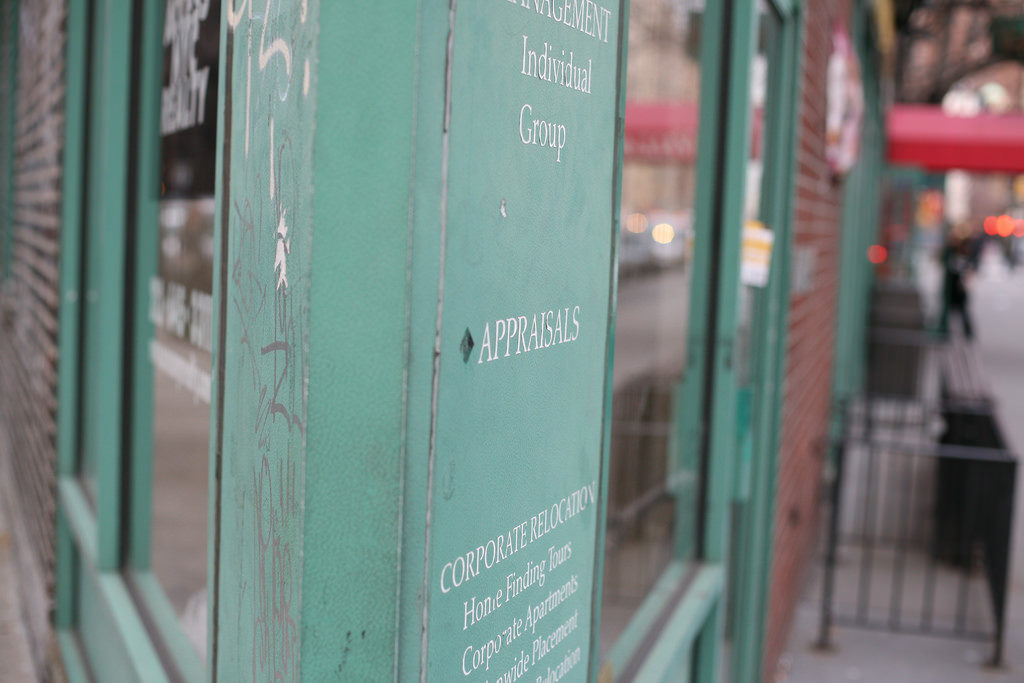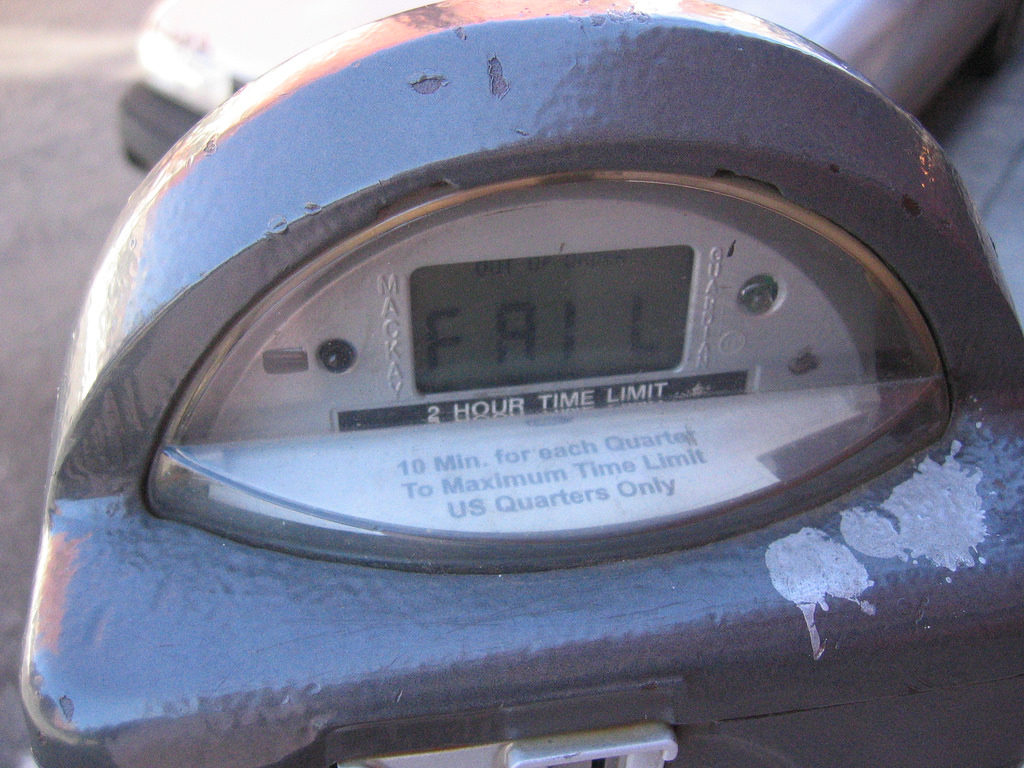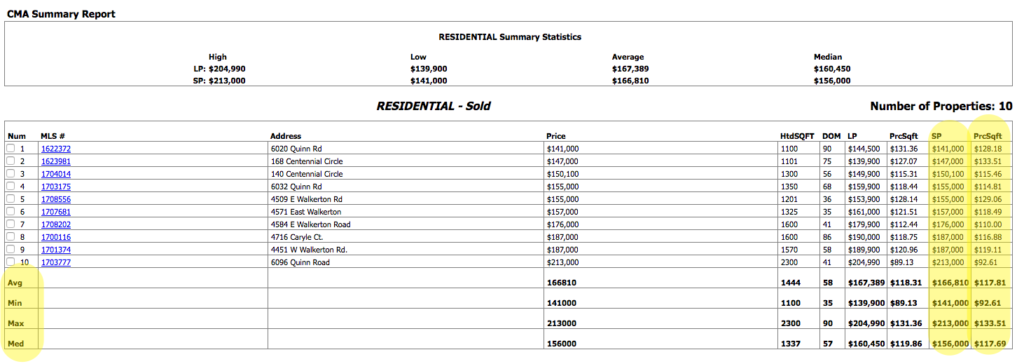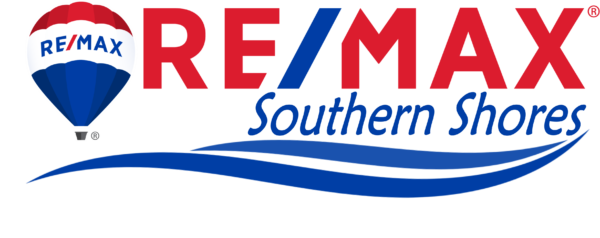 I’ve shared a lot of content over the past few months on tips for selling your Myrtle Beach home and ways that you can increase the price of your property when selling it. Today, I want to discuss in detail pricing and the importance of getting the pricing right for a quick sale and while getting you the most amount possible. I am going to actually walk you through the process I use to figure out the value for a home that I am about to list.
I’ve shared a lot of content over the past few months on tips for selling your Myrtle Beach home and ways that you can increase the price of your property when selling it. Today, I want to discuss in detail pricing and the importance of getting the pricing right for a quick sale and while getting you the most amount possible. I am going to actually walk you through the process I use to figure out the value for a home that I am about to list.
Pre-Meeting Work
Before taking a trip to the home to discuss what we can do to sell her home for the most amount of money in the quickest time possible, I go onto our online system and pull up some data on current homes for sale in her neighborhood as well as what has sold in the neighborhood over the past few months. I take time and study all the details of the various properties to make sure I know as much as I could to most accurately price the home for sale. I am not known for pricing my listings too high or too low.
I usually spend a good hour or two on this analyzing each of the sold and active properties to learn about the features of each property that will be current competition as well as learning what features might have helped a home sell for top dollar or for the lowest price. I also normally try to make a trip by the property the day or two before our meeting to familiarize myself even more about the subject property. When I come to visit your home and we begin the discussion on price, I am as prepared as possible.
Where Do You Rank Your Home?
One of the first questions I try to ask on every listing appointment is how do you rank your home on a scale of 1-10. A home ranked 10 is going to be like new with all the upgrades possible, freshly painted, new flooring and appliances. A 1 home is a property that probably needs to basically be torn down. I ask this question so that I can learn where the seller feels their home should be valued.
When we start discussing price on the home, it helps sellers to remember where they said their home ranks. Too many times I have someone who wants to list their home at top dollar even when they know it is an average home. When they do say that, I remind them that they said their home was only a 5-6 so it should be priced in that same range.
Upgrades vs. Maintenance
This is an area that causes some of the biggest disagreements when trying to figure out pricing of a home between a seller and a real estate agent. The seller argues that they just spent $10,000 for a new roof on the home or $5,000 for a new air conditioning system in the house, so they should be able to get that money back in the sale. Unfortunately, these type of expenses cannot be categorized as upgrades, but need to be looked at as maintenance. If you didn’t sell your home, you would still need to fix the leaky roof and cooling system in order to continue living in the home. They do not add value to the home, just help preserve the value of a home.
The other common misconception regarding upgrades is that if a seller puts top of the line upgrades into their home, they are going to get all of that money out. I remember one home I recently went on a listing appointment had upgraded all of their lighting fixtures and spent over $75,000 doing so. They thought that they would be able to recoup all of this money which isn’t accurate. While the upgraded lights might see the fixtures and love the way they look, at the end of the day they see a light and are not normally willing to spend extra just because you did. When making upgrades, think about the options you choose to make the home as appealing as possible to the largest group of buyers without spending too much on these upgrades.
Pricing in Fantasyland
 When it comes to setting the listing price, it’s really important to not start too high. If you price your home too high, it is not going to sell and even if you are lucky enough to get a contract on your home while priced too high, it is not going to appraise for the proper amount. I did a video on this before sharing your options here: Once the appraisal comes in for less than the contract, what do you do? You’ve got a only a few options when this happens, you can either reduce the price to appraised value, ask the buyer to bring the difference in appraised value and contract price to the table in addition to their down payment for the loan, or the final option is for the buyer to walk away and you lose the contract.
When it comes to setting the listing price, it’s really important to not start too high. If you price your home too high, it is not going to sell and even if you are lucky enough to get a contract on your home while priced too high, it is not going to appraise for the proper amount. I did a video on this before sharing your options here: Once the appraisal comes in for less than the contract, what do you do? You’ve got a only a few options when this happens, you can either reduce the price to appraised value, ask the buyer to bring the difference in appraised value and contract price to the table in addition to their down payment for the loan, or the final option is for the buyer to walk away and you lose the contract.
In most situations though, the home is not going to end up selling, but instead falling apart and losing the buyer unless you are willing to take the lesser amount. One of the largest culprits of homes being listed for too much money is people looking at their competitions of other homes currently on the market. Almost every time I have a seller wanting to list their home for a much higher price than it actually should be, I hear this statement: “But my neighbor down the street just put their home on the market for $xxxxxxxx price, mine is much nicer, so I should be able to get more than that.” Unfortunately, listed prices don’t determine market value. I call the listing price of homes on the market Fantasyland.
Fantasyland prices are what people hope & wish their home will actually sell for. But at the end of the day, it doesn’t determine what a home is actually worth. We can wish & hope all day long, but at the end of the day, sold data will determine the house value.
The other common statement I hear regarding price when we list a home for sale is this: “Well, we want to try things out and then we will reduce later.” This is a REALLY bad idea. When I list your home for sale, the first 30 days is the prime time to get your home exposed out to new potential buyers who might be interested in your home. During the first 30 days, your home get sent out to over 700 different websites where buyers have registered, set up alerts & notifications when something new comes on the market that might fit their needs. If your home is worth $245,000 but you want to test the market at $260,000, that buyer never sees your home since their alert cuts off homes at $250,000.
By the time we reduce the price to the correct range, that buyer has probably already found a home or they see a home that has been on for a long time and then they want to get a deal. Ultimately, you end up losing more in the long run.
Pricing Fail Zone
 The one area that no seller wants to end up in is the fail zone. These are the homes that have been on the market for a period of time but did not sell and have expired. Sometimes this is caused by listing the property with an agent that doesn’t market the home properly so it doesn’t get the exposure it deserves. Some is caused by bad images of the property, or a bad write up, or not enough information. But the main reason properties end up in the fail zone is caused by homes being listed for too much money. Just because you have an old appraisal that said the home was worth a certain amount, or when you bought the home you paid a certain amount & then added $30,000 in upgrades, it doesn’t automatically make the home worth that much more. Ultimately, the market determines the value of a home.
The one area that no seller wants to end up in is the fail zone. These are the homes that have been on the market for a period of time but did not sell and have expired. Sometimes this is caused by listing the property with an agent that doesn’t market the home properly so it doesn’t get the exposure it deserves. Some is caused by bad images of the property, or a bad write up, or not enough information. But the main reason properties end up in the fail zone is caused by homes being listed for too much money. Just because you have an old appraisal that said the home was worth a certain amount, or when you bought the home you paid a certain amount & then added $30,000 in upgrades, it doesn’t automatically make the home worth that much more. Ultimately, the market determines the value of a home.
How Prices Are Determined
When it comes to figuring out how to price a Myrtle Beach home for sale, there is no exact science. Pricing depends on a lot of variables, but at the end of the day, I should be able to accurately give a range to my seller and be within an acceptable range of $5,000-$10,000 normally. Here’s how I go about figuring out how a home should be priced for sale which I think is somewhat similar to how professional appraisers do it.
First, thing I do is collect all data on what homes have actually sold for in a neighborhood. With the way our market is right now, I normally only need to go back 90 days to find enough properties that have sold in a specific area or subdivision. If I do not get enough properties to provide a sufficient amount of comparable properties, I will then go back another three months or as long as needed. See an example below:
On this report, it shows you several things, but the main items I pay attention to is the sold price column & the price per square foot column. At the bottom of the spreadsheet, it then also gives me an average, median, minimum, and maximum price per square foot. Then, I simply measure out the home and this should give me a base range to start with pricing on.
Of course, this doesn’t take into account all variables like an oversized garage, swimming pool, etc, those items have to get factored in separately. This is where studying all the properties comes in handy. If I see you have granite in your property where most other don’t I can then look at the other properties which sold with granite and can figure out how much would need to be added or deducted for features you might have or don’t have.
I then can tell the seller the ranges for average, median, and max for their area on properties that sold. That’s basically the extent of how pricing comes about. Usually after we finish this discussion we are ready to then discuss terms of the agreement and get the home listed on the market.
Bonus Tip
Here’s one bonus tip when it comes to pricing your home for sale that gets overlooked too often. Too many sellers and agents try to adopt a sales technique when pricing a home that ultimately hurts their search greatly. Remember when I mentioned earlier that there are over 700 websites out there with thousands of buyers who have searches set up to send them new properties when they come on the market that meet their criteria? Well, depending how you price your property can cause a huge group to miss out.
Think about when you purchased the home you currently live in. When you began speaking with your real estate agent, you gave them all the specifications for the home you wanted to purchase. When the agent asked what you wanted to spend, you more than likely gave them a range in an even number. In our market, it’s normally in $25,000 ranges. So you might say, $125,000-$150,000. Now if you list your property for sale at $124,900, you are going to miss all of the buyers out there that are willing to purchase your home for $100. The same is true for the seller that tries to be cute with the price of their home and lists it for $151,515. Think in round numbers and get more eyes on your home.
Wrap-Up
I hope that this article sheds some light on the process of how a real estate agent goes about pricing a home for sale and can give some insight to anyone who is thinking of selling their home in the near future. In the next few weeks I will go into several aspects of selling a home including how a real estate agents markets properties to get them sold, what you should do to get your home in selling condition, and what documents you will sign when selling a home.
If you are considering selling your home, do not hesitate to either call me at 843-222-9402 or simply contact me here and we can discuss how we should price your Myrtle Beach property and get it from For Sale to SOLD!



[…] week I wrote a rather lengthy article going through the importance of pricing your home properly when you are placing it on the market in Myrtle Beach. In the end of that post, I mentioned that I […]